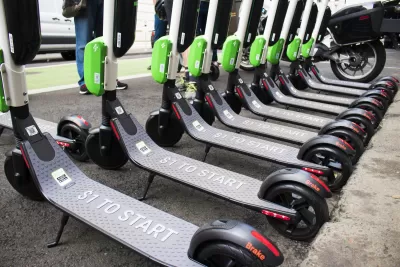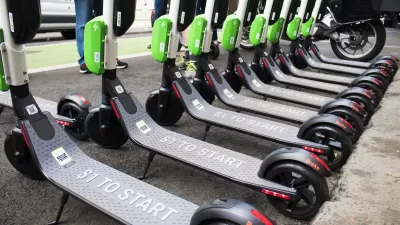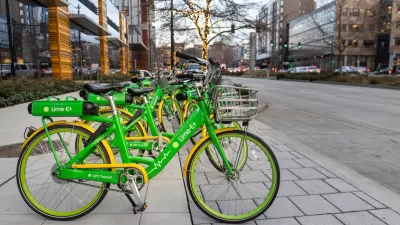Pilot programs can offer useful insight to decisionmakers, but they need to be done for the right reasons and with clear goals and plans.

Kristin Musulin reports on a recent policy brief about developing and executing mobility pilot programs as local governments look new technologies such as autonomous shuttles, dockless scooters, and ride sharing services.
Musulin talked to David Zipper, the author of the brief, about how pilot programs can be designed to best help officials and policymakers assessing the landscape of emerging mobility options.
Zipper says local governments need to identify clear goals for the projects, foster transparency that then builds credibility, and accept the outcomes. "If the hypothesis is not confirmed — if microtransit doesn't save money, or if scooters don't reduce car trips — I think it's terrific if the city can come out and say look, we ran the pilot, we collected the data, our hypothesis didn’t work out the way we thought. So now we’re going to make the appropriate decision."
Local governments also need to collect the right data and have the capacity to analyze it within their organizations or through partnerships, says Zipper. Pilot programs done for the right reasons can be extremely beneficial for a city as well as other cities considering similar programs and technologies.
"I would suggest that many times, the reasons that pilots happen have to do with what I would call FOMO [fear of missing out]. You have a city leader who wants to throw a technology on the street before peers do. I think it's a really bad habit and it can lead to wasted resources, dashed expectations and, in an absolutely worse case scenario, really unsafe technologies on the streets that can cause real damage," says Zipper.
FULL STORY: An urbanist's guide to creating effective mobility pilots

Study: Maui’s Plan to Convert Vacation Rentals to Long-Term Housing Could Cause Nearly $1 Billion Economic Loss
The plan would reduce visitor accommodation by 25,% resulting in 1,900 jobs lost.

Alabama: Trump Terminates Settlements for Black Communities Harmed By Raw Sewage
Trump deemed the landmark civil rights agreement “illegal DEI and environmental justice policy.”

North Texas Transit Leaders Tout Benefits of TOD for Growing Region
At a summit focused on transit-oriented development, policymakers discussed how North Texas’ expanded light rail system can serve as a tool for economic growth.

Nevada Bills Aim to Establish Home Insurance Assurance Amidst Wildfire Risk
Republican sponsor hopes the FAIR plan would be “a true market of last resort.”

Virginia Law Allows Judges to Mandate Speed Limiters
The law could set a new precedent for speed limiting tech on U.S. vehicles.

Comment: EPA Cuts will Send Atlanta Back to Eye-burning Ozone, Lung-damaging Smog, and Raw Sewage in the Chattahoochee River
A veteran political journalist takes stock of the hard-earned ground Georgia stands to lose with slashed environmental protection.
Urban Design for Planners 1: Software Tools
This six-course series explores essential urban design concepts using open source software and equips planners with the tools they need to participate fully in the urban design process.
Planning for Universal Design
Learn the tools for implementing Universal Design in planning regulations.
City of Santa Clarita
Ascent Environmental
Institute for Housing and Urban Development Studies (IHS)
City of Grandview
Harvard GSD Executive Education
Toledo-Lucas County Plan Commissions
Salt Lake City
NYU Wagner Graduate School of Public Service





























